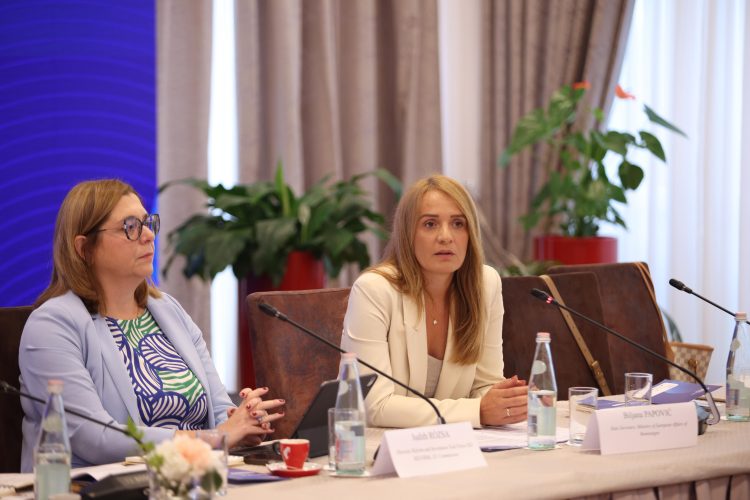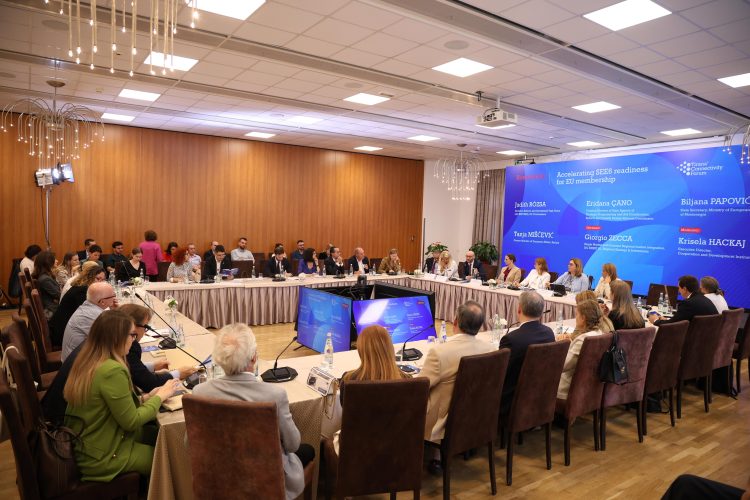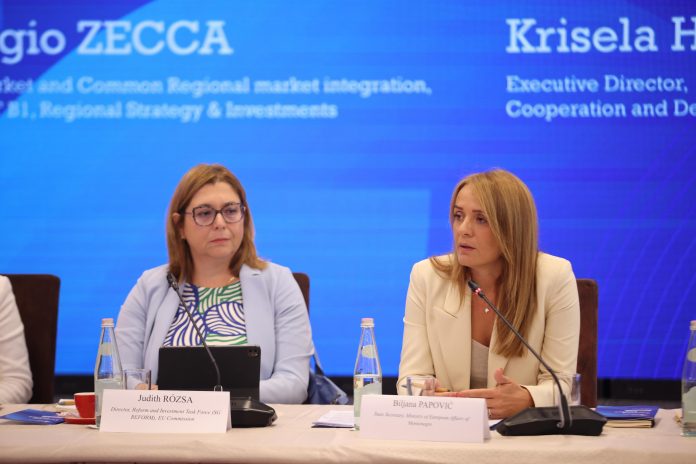The Reform Agenda for the EU Growth Plan is not just a political obligation, but a concrete opportunity to strengthen institutions, accelerate European integration, and raise the standard of living for citizens of the Western Balkans, it was stated at the Tirana Connectivity Forum, where the State Secretary in the Ministry of European Affairs, Biljana Papović, participated.
Speaking at the panel “Strengthening the Readiness of Southeast Europe for EU Membership,” Papović emphasized the importance of the Growth Plan for the Western Balkans as a key tool for accelerating the integration process and presented Montenegro’s progress so far in implementing the Reform Agenda within the Framework for Reform and Growth.

“The fact that Montenegro was among the first countries in the region to adopt its Reform Agenda, with 32 reforms and 130 steps, speaks clearly about the maturity of our institutions and our readiness to take responsibility for demanding reforms,” said Papović.
The role of the Ministry of European Affairs was particularly highlighted, having created a system in which each actor knows their role and responsibilities. Experience has shown that funding models, clear division of roles, and synergy between the Ministry of European Affairs and the Ministry of Finance are of essential importance for success.
“The Reform Agenda is not just a political obligation but also a concrete economic opportunity. Support to Montenegro within the EU Growth Plan for the Western Balkans amounts to €383.5 million, of which €110 million are grants and €273.5 million are favorable loans. The expected annual effect of structural reforms on real GDP growth amounts to an additional 0.9% in the period from 2024 to 2026. These figures clearly show that reforms are not abstract obligations but concrete investments in Montenegro’s economic convergence with the European Union,” stated State Secretary Papović.

Papović stressed that the implementation of the Reform Agenda in practice brings many benefits for Montenegrin citizens, such as new schools, improved infrastructure, strong social protection, and environmental protection. Positive reforms also include energy efficiency and spatial planning, while the greatest challenges are judicial reforms and institutional changes.
She pointed out that the reform process and accession negotiations are two sides of the same coin. The implementation of reforms directly affects progress in negotiation chapters. Since the beginning of the implementation of the Reform Agenda, Montenegro has successfully closed four negotiation chapters and achieved significant progress in many others.
She concluded that through the reform process Montenegro is demonstrating its readiness to manage complex processes, deliver results, and ensure the sustainability of reforms, confirming that the country’s European path is clear and achievable.
MINISTRY OF EUROPEAN AFFAIRS


